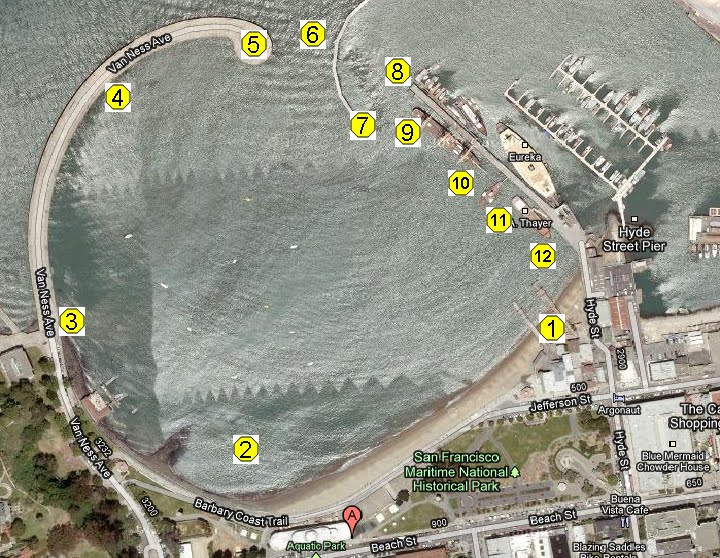Friday 01/08/10
People have expressed a curiosity about the decision process leading to a commitment to swim the English Channel. Acquaintances typically voice their wonder with the question, “Are you crazy?” Friends approach the topic more obliquely. “I’ve read your blog and I know you and Lindsay had some champagne at Foreign Cinema on the anniversary of your Channel relay and you discussed a solo attempt and she was supportive—but are you crazy?” So why am I doing this?
Massive amounts of ink have been spilt on the subject of human motivation. Modern game theory examines the nooks and crannies of human choice in a staggering array of circumstances. These studies provide detailed glimpses into myriad specific scenarios. Before this field became so scientific, two giants in the field of psychology wrote seminal works in the 1960’s that shaped my personal conception of why people do the things they do.
Frederick Herzberg proposed a dual structure theory. According to Mr. Herzberg, people shape their behavior in response to “motivator factors” and “hygiene factors.” Hygiene factors pretty much relate to comfort. Pay and benefits, co-worker relations, and job security are examples. When the hygiene factors are adequate, people probably won’t be desperate for another job. They may not do their job well, but they’re likely to continue not doing their job well where they are. Motivator factors, on the other hand, contribute to passion and missionary zeal. Achievement, recognition, and growth are examples of factors that cause people to do the best job they possibly can. To my high school student brain, the subtitle was: motivator factors motivate and hygiene factors placate.
Abraham Maslow took a different, but complimentary approach. In his book, Toward a Psychology of Being, he organized human desires into a pyramidal hierarchy of “needs.” At the bottom of the pyramid are the basic needs such as air, food, and security. At the top of the pyramid is the need for “self-actualization,” a term that Mr. Maslow borrowed from Kurt Goldstein. Mr. Maslow simplified the various needs on the pyramid into two basic types: “deficiency motivators” and “being motivators.” “Being motivation” refers to the un-striving, almost organic flow state that can emerge when the deficiency motivators are reliably satisfied.
A friend of mine has poured these basic concepts into his own unique cognitive blender. As reflects his Calvinist upbringing he says, “Other than basic survival, people do things for two reasons—duty or amusement.” He gives the example of choosing to have children and raise a family. “Some people have children because they feel a sense of duty to their parents or their religion. They MUST propagate the species or carry on the family name. They MUST produce grandchildren for their parents. Other people have children because they think it will be amusing: babies growing, learning, transforming; seeing the world through a child’s eyes; experiencing the unexpected marvels that children occasionally wrought. This is entertainment.”
Not having children, I’m in no position to comment. I can say that Lindsay and I decided to commit to this English Channel project because we thought we would find it amusing. We knew we’d learn new things. We knew we’d have new reasons to collaborate and plan. One of the unexpected marvels is how much satisfaction I’m getting from writing regularly. Another is how broadly my social circle has expanded.
It is true that Lindsay encouraged me over the years, courting the boundary of coaxing. But, the decision was ultimately mine. Her advocacy simply furnished the freedom necessary for the undertaking, providing me assurance that we were both willing to shoulder the inevitable burdens. Without that knowledge, this project would definitely not be fun.
Abraham Maslow wrote, “If we wish to help humans to become more fully human, we must realize not only that they try to realize themselves, but they are also reluctant or unable to do so. Only by fully appreciating this dialectic between sickness and health can we help to tip the balance in favor of health.” Were Mr. Maslow still alive, he might say that a little coaxing is not necessarily a bad thing.
For a closure-oriented person, this is remarkably process-oriented stuff. I will say, though, that it will be far more amusing if I successfully cross that ditch.
6 years ago


No comments:
Post a Comment